[Editorial] Mental Health & Horror: How Horror Became My Coping Mechanism
When I was growing up I always found it difficult to process my emotions, especially when they were ones that had negative connotations surrounding them; I would often feel guilty or ashamed for experiencing emotions like these.
Even as a young child I remember always stifling a cry or trying to be anything other than positive and funny. That sentiment has become part of my safety blanket and one I continuously fall back on, with most of my close friends and family rarely seeing me cry, and instead confronting my own trauma or emotions with dark humour which to me feels like a comfortable place to live, but for others is awkward and un-genuine. My therapist helps me to unpackage the reasons around why I have particular coping mechanisms and the aspects that bring that forward, but one of the aspects of all my emotions that I have always felt horror helped me to deal with is feeling a sense of disconnect to other people and truly feeling more comfortable and safe within my own world.
To look at myself as an entity, I imagine myself completely untethered to anyone else or anything else; the thought of being dependent on someone other than myself feels completely dangerous, because essentially I know I can always rely on myself. I remember being about 8 years old and asking my parents ‘Why do I not miss people?’ to which they explained that it could just be a feeling that went away with time. It didn’t go away with time, and it has become so embedded into my life that I still find myself pondering to this day about why my stomach doesn’t pull and tug at the thought of not seeing someone again. I did not start watching horror films at a very young age, and in some ways I am convinced that if I had started watching them when I was 4 years old, that I might be more adapt with confronting my monsters, but on the other hand I have never thought it particularly responsible to be showing a young child a film like The Texas Chainsaw Massacre, so there’s also that. Although my first instance of horror films was around the age of 13 when I watched Sam Raimi’s The Evil Dead, I had actually encountered horror in many forms from a much younger age. The two particular pieces of medium that had become my little slice of terrifying solitude were books and TV shows.
As a child I was fascinated by the concept of ghosts and otherworldly entities including aliens, they were all I thought about and I even convinced my Dad to help me build a 6 foot tall alien from paper mache which would live in our hallway and frighten arriving guests. But ghosts for me were something that I was obsessed with; I wanted to consume absolutely anything I could that talked about ghosts, with my bookshelves becoming a sanctuary for ‘real’ ghost tale books that I would pick up when visiting new places around the UK. One aspect that really stood out to me was that many of the people who recalled these tales of seeing ghosts, often mentioned how they had found comfort in the experience, which was an interesting concept to a small mind. I had been led to believe that ghosts, witches, werewolves and ghouls were the stuff of nightmares, with monsters lurking under the bed and in the shadows ready to claim my life if I didn’t get into bed quick enough or keep my night light on. But through these stories I began to see a more human side to ‘scary’ creatures of the night; in particular ghosts, they were once human and often the stories I read was about the ghost finding peace with the world and being able to move on to a better place. And more times than often, the person telling the story would say it brought them warmth knowing there was more to life than what was on the surface. I’m not saying that I am a believer in ghosts, probably quite the opposite now I’m older; very cynical. But when my beloved Grandmother died of lung cancer when I was 10, I spent hours upon hours locked inside my room reading these stories as a form of comfort, hoping that perhaps she would be somewhere as a ‘ghost’ still finding enjoyment in the world. My other hope as a young grieving girl was that she followed me around and looked after me, providing a constant source of protection against the shitty things that were inevitably going to happen in my life.
As I headed into my teens I began to feel less and less connection towards ghosts; I wished to be ‘cool’ and hang out at the park, drink underage and talk to older boys. So locking myself away with faux ghost stories became a pastime that I had no intention of continuing. Instead of becoming transfixed with books, this was where Buffy the Vampire Slayer began to play an exceptionally important role in my life, and could be seen as one of the source materials which helped to shape the person I am today. By this point I had come to realise that life could be shit. In secondary school I was overweight and intelligent, two things that typically get you on the ‘lame as fuck’ list with a heavy dose of bullying involved. Although I had friends and was popular within the group that I hung out with, I still recognised myself as an outcast that didn’t fit in the popular circles - it is not that I really wanted to associate with the people in those circles, but I wanted to be seen as popular, cool and pretty. Mostly I was picked on for my weight or the way I dressed, two aspects that had a heavy influence on my mental health and the way I perceived, and actually still do, myself. Through this insecurity of the self and becoming to loathe what I saw in the mirror I sought out solace in attraction, figuring that if a boy liked me, then that was acceptance and approval that I was pretty enough in this world. Looking back on that makes me feel upset for that young girl, such a harmful and dangerous way to have viewed myself, but one that still lingers in the back of my mind more often than not. Once again I turned to solitude instead of letting people know how I was feeling or what I was going through, and this time it was Sarah Michelle Gellar’s portrayal of Buffy Summers that finally helped me to start finding myself and discovering the person I was developing into.
What I found most comforting about watching Buffy the Vampire Slayer was that Buffy was never portrayed as perfect, she had a multitude of flaws that were often highlighted by others, but that didn’t stop them from loving her or from her being a badass teenage girl that was single-handedly saving the world. Although Buffy was constantly surrounded by people that admired her, she began to realise that she had to rely on herself to get shit done, and although that could be damaging and often lonely, it was her coping mechanism of getting through the shit thrown at her. There was something so empowering watching this fictional character on screen be the most badass person in the world but also fight against falling love, have parental problems, find complications in friendships and suffer with her own existence at times. It was through this show that I began to see that I could be whoever I wanted to and also have a vulnerability, because no human is perfect and no human should be perfect. For me, watching the show became an obsession; I had collected every single piece of memorabilia attached to it and even started carrying around a wooden stake in my bag to feel a sense of ‘slaying’ every day. Even though I haven’t re-watched Buffy the Vampire Slayer in many years, I’ll always remember the latter seasons after *SPOILER* she died and came back to life, those moments where she wandered aimlessly without understanding the reason behind her being alive felt so poignant to me and has been something I’ve carried with me for a long time. I often find myself thinking too much about the ‘why’ of life, and that can be draining emotionally and physically, leaving you in a state of severe disconnect from the tangible. But even when dealing with difficult emotions and finding herself in turmoil, Buffy was a character that preserved and didn’t give up, and even when at her lowest moments, the people around her still loved her unconditionally for who she was and that sentiment really helped me to grow and understand who I was.
Even though these formative years really helped to shape who I am today, circumstances and life have continued to batter my mental health at times. When I lost my mum to breast cancer in 2011, it was one of the roughest periods of my entire life. In all honesty I dealt with it incredibly badly, but found a way to portray to the outside world that I was perfectly fine, pulling on that dark humour to deter any actual emotions. My world became a chaotic mess of self-destructive behaviour for 5 years afterwards, continuously punishing myself through relationships I didn’t want to be in, jobs that made me physically unwell and blocking myself off from the outside world. Although my coping mechanisms weren’t the healthiest, there was one aspect of all of this that really helped me to get through the period and find a little slice of myself again. It all started with Cannibal Holocaust during University. When I started University it was just a couple of months after my mum passed away and I was in a dark place; she had been the person that had been my rock when it came to education, constantly pushing me to do my best and becoming the biggest cheerleader I could wish for, always so proud of every achievement I accomplished. Going to University was one of the worst experiences - I lived at home for guilt of leaving my Dad and brother by themselves, and because of that found it difficult to make any friends, instead opting for solitude by eating lunch in my car and avoiding all social interaction where possible.
Whilst working on a piece about found footage and what was the first found footage film to ever be released, I came across Ruggero Deodato’s shocking film and instantly something within me clicked. After months upon months of feeling numb and senseless to the world around me, something evoked my emotions and I got a feeling stirring in me once more. I felt completely different whilst watching this film and was so overcome by what I was experiencing. At first there was a discerning sense of concern for myself, I was worried I was heading down a dangerous path but there was also a signal of safety, something that felt like home without danger. From here I continued my path into extreme cinema, allowing myself to spend hours upon hours researching the most disturbing and fucked up films to exist in the world. The second film that I discovered was Tumbling Doll of Flesh and it completely changed my perception of life; even within the most horrific of films there is some art form and beauty. That allowed me to apply this theory to real life: even though the most devastating things can happen to us and the ones we love, that doesn’t mean the world and even ourselves have to be completely stripped of the positive. This on-screen suffering and pain was the outlet I needed to safely confront my own feelings in a private way, it allowed me to begin processing what I was feeling and start to heal.
To many people, turning to films like August Underground, Guinea Pig: Flowers of Flesh and Blood and Nekromantik may seem more harmful than helpful when it comes to mental health. But horror is not like any other genre; it was designed to scare us and make us feel a sense of fear at what we are watching, however, through that fear many of us have found comfort and safety within that. Editor-in-Chief of Fangoria, Phil Nobile, recently mentioned me in his article Without Parent or Guardian and I have to agree with many of the sentiments that Phil alludes to. Although many of us horror fans have found that horror as a genre allows us to confront trauma and find a comfort within the films we watch, they aren’t films that were designed to comfort us, they were films designed to frighten and horrify us. When I discovered extreme horror films, I wasn’t intentionally looking for something that would provide me comfort - when I actively did that I turned to Pineapple Express which absolutely worked. Finding comfort in extremely disturbing horror films was a surprise even for me; but it was the confrontational aspects of these films in which I found a way to confront my trauma, grief and suffering. Witnessing the torture of another human being allowed me some form of catharsis, which to some sounds completely deranged but for me it was a solace.
If horror films begin to be created with the sole purpose of comforting the viewer, then for many of us horror fans, we’ll probably discover that we don’t find the same comfort in them anymore. It is a difficult concept to articulate eloquently but what I believe Phil is saying (and I completely agree with) is that we can find comfort in anything, but if filmmakers begin to create horror just to comfort the viewer, we’ll lose the elements that were so comforting in the first place. For me, horror is a safe space that I can begin to confront emotions that I find difficult to process and can’t communicate to others, and by choosing films that are confrontational in their nature it forces me into a place of recognising the elements I continuously try to keep locked away from myself.
Horror, in all mediums, has constantly been a stable lifeline for me and I don’t see that ever changing. From the ghost books as a child to Buffy the Vampire Slayer as a teenager to extreme cinema as a woman, it is the one consistent that I have always relied on and has never let me down. Even my therapist now refers to many of my emotions in the context of horror films because it is a language that makes sense to me, and can easily represent my mental health when I’m struggling to find the right words. Horror has saved my life time and time again, and I hope even when I’m 90 years old staring death in the face I’ll be able to turn to my trusted companion of horror and find a way to process.


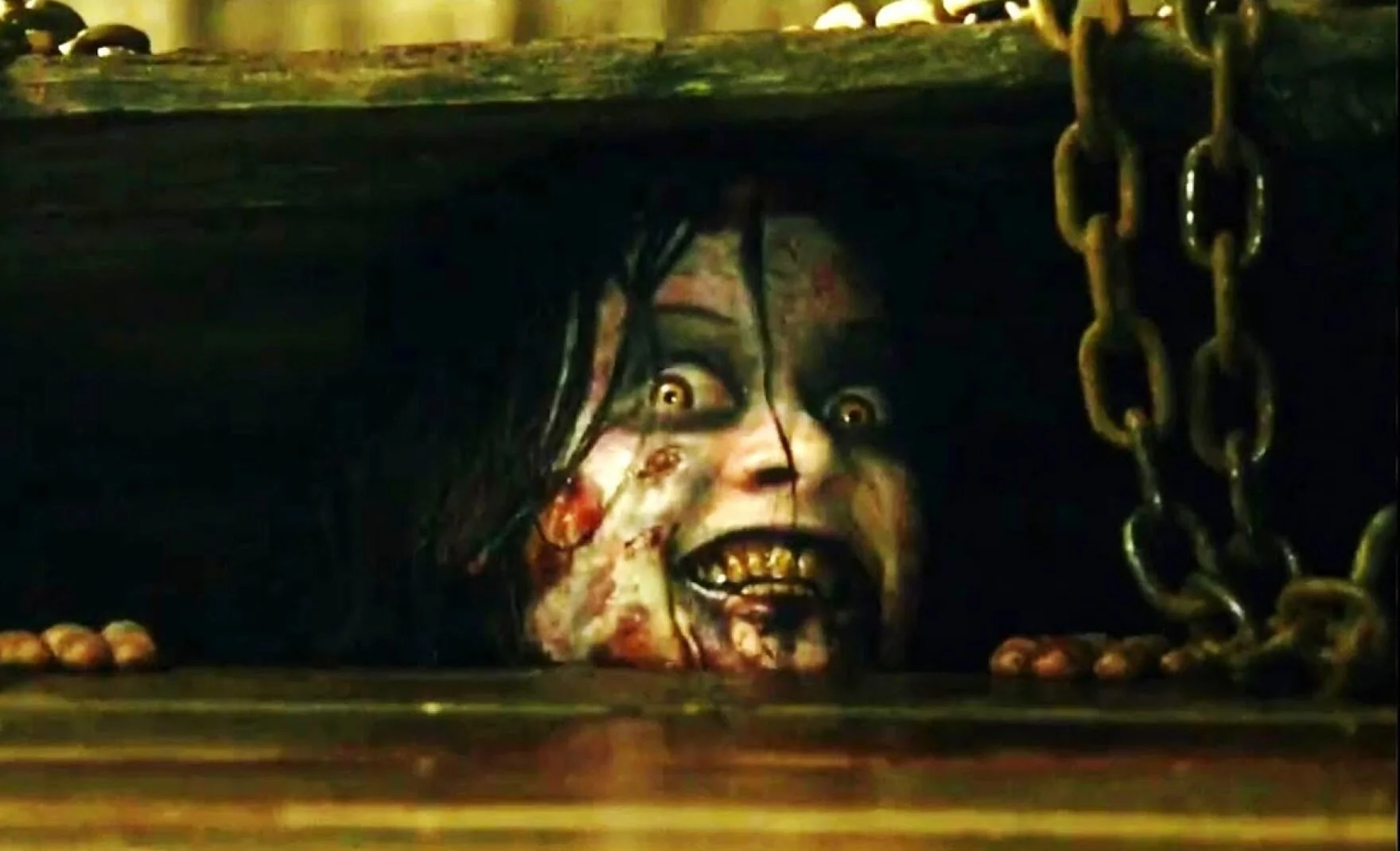
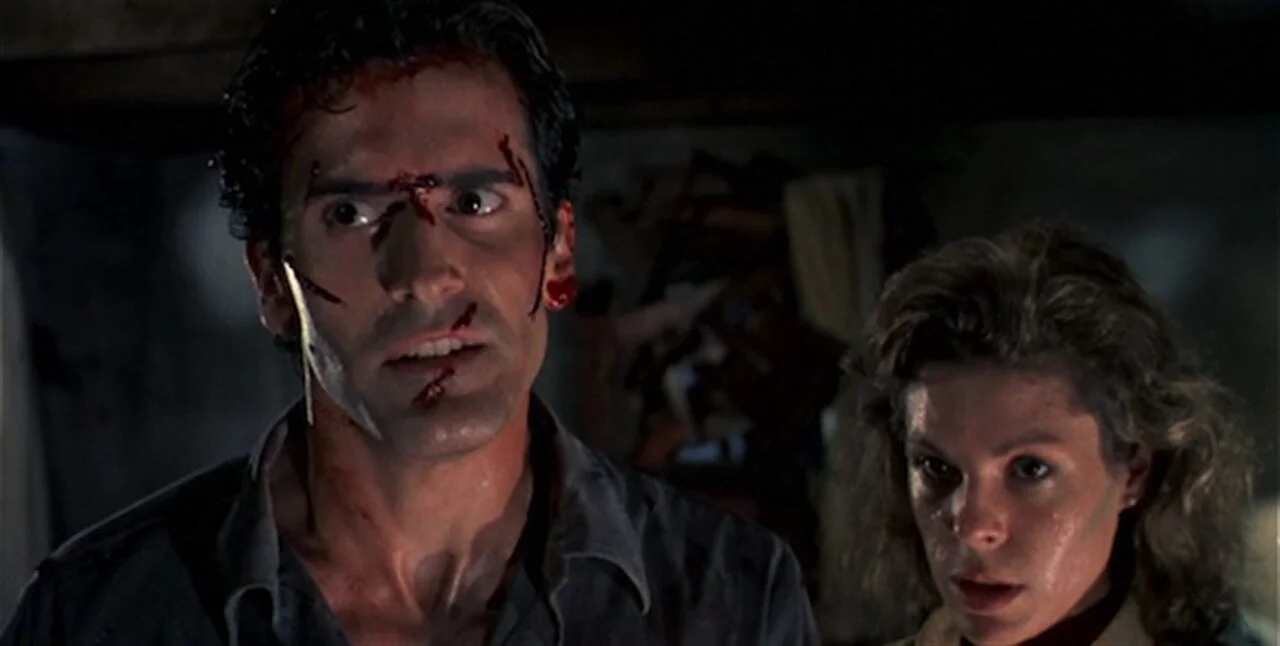
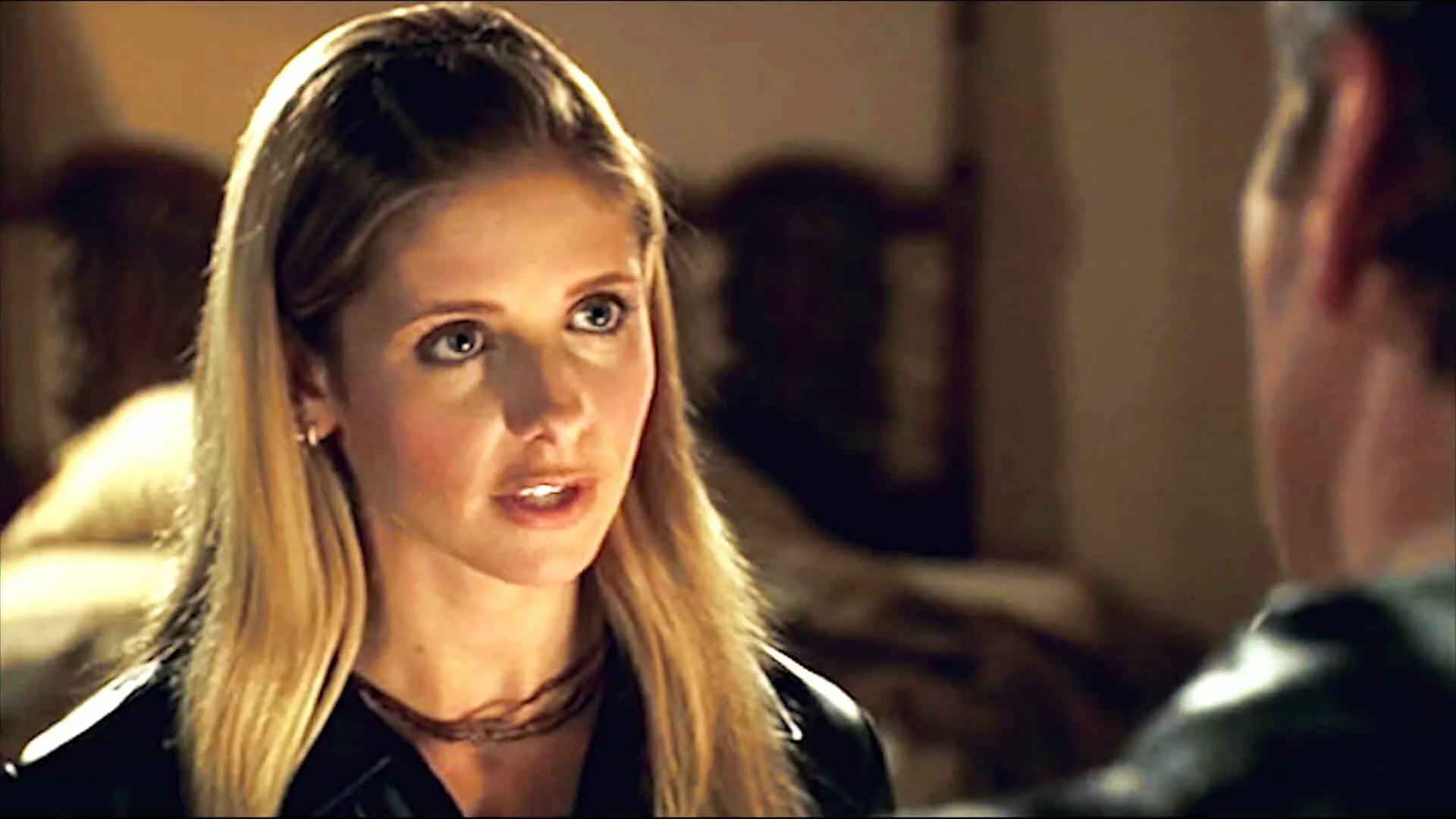

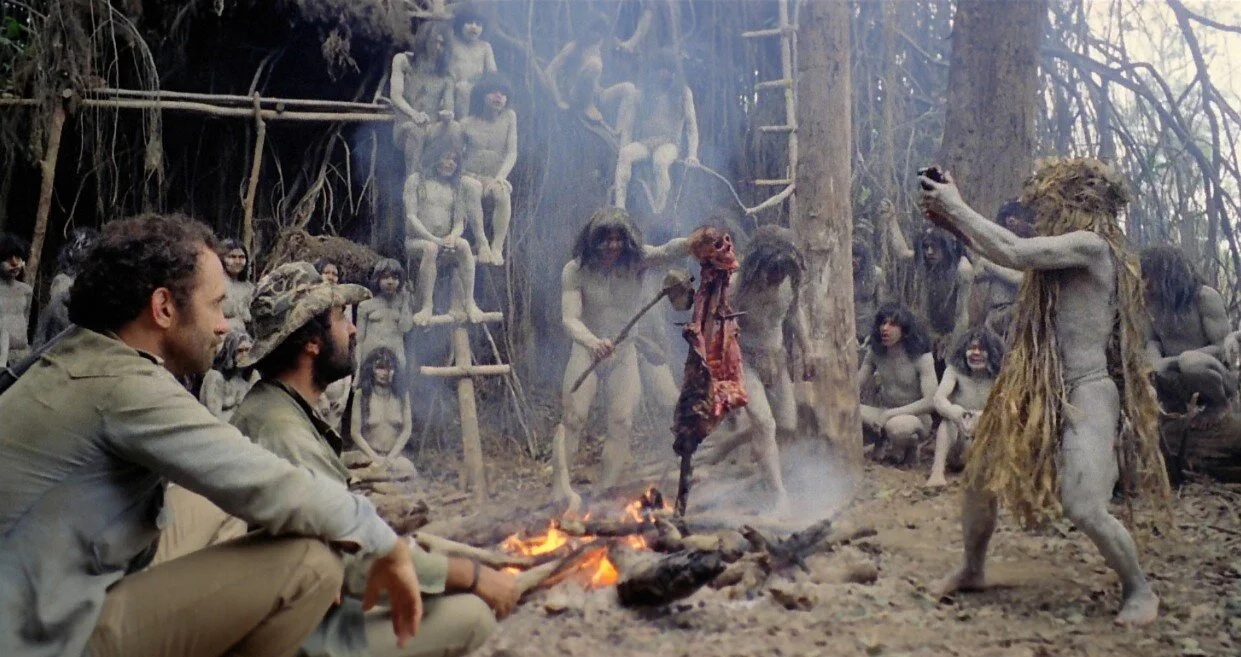
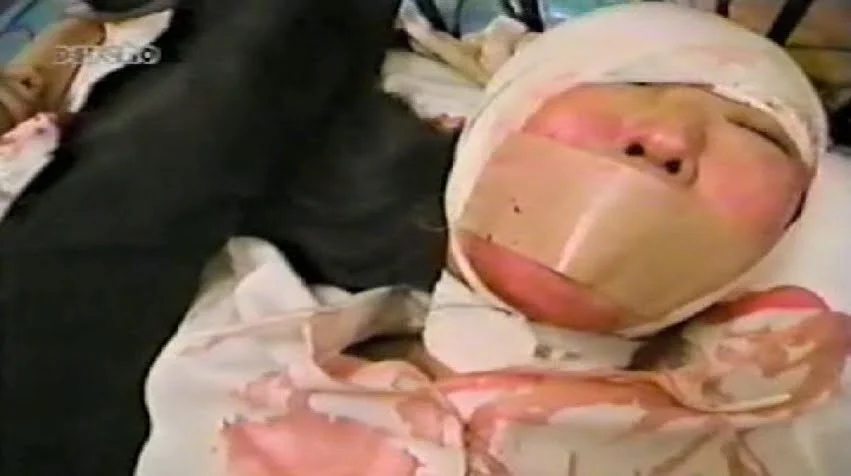
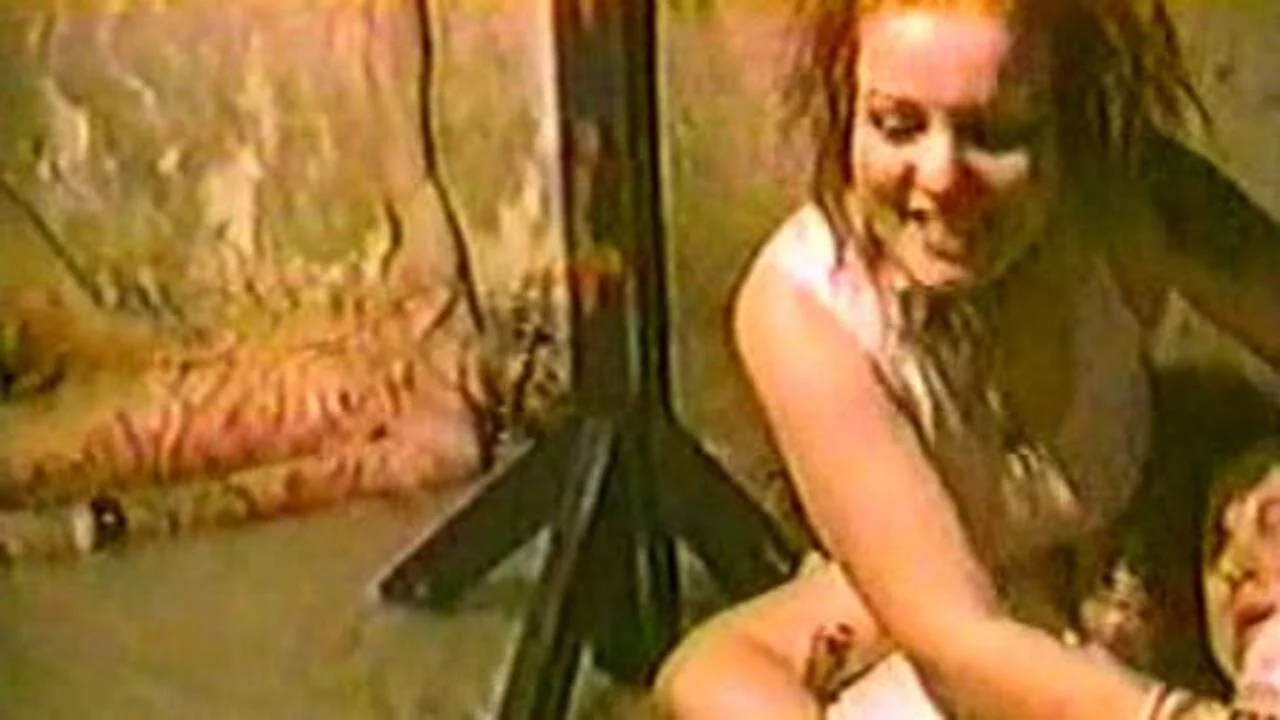
![[Editorial] “I control my life, not you!”: Living with Generalised Anxiety Disorder and the catharsis of the Final Destination franchise](https://images.squarespace-cdn.com/content/v1/5fe76a518d20536a3fbd7246/1696444478023-O3UXJCSZ4STJOH61TKNG/Screenshot+2023-10-04+at+19.30.37.png)
![[Editorial] 8 Mind Horror Short films](https://images.squarespace-cdn.com/content/v1/5fe76a518d20536a3fbd7246/1693504844681-VPU4QKVYC159AA81EPOW/Screenshot+2023-08-31+at+19.00.36.png)
![[Editorial] If Looks Could Kill: Tom Savini’s Practical Effects in Maniac (1980)](https://images.squarespace-cdn.com/content/v1/5fe76a518d20536a3fbd7246/1694952175495-WTKWRE3TYDARDJCJBO9V/Screenshot+2023-09-17+at+12.57.55.png)
![[Editorial] Eat Shit and Die: Watching The Human Centipede (2009) in Post-Roe America ](https://images.squarespace-cdn.com/content/v1/5fe76a518d20536a3fbd7246/1691245606758-4W9NZWE9VZPRV697KH5U/human_centipede_first_sequence.original.jpg)
![[Ghouls Podcast] Maniac (2012) with Zoë Rose Smith and Iona Smith](https://images.squarespace-cdn.com/content/v1/5fe76a518d20536a3fbd7246/1696356006789-NYTG9N3IXCW9ZTIJPLX2/maniac.jpg)
![[Editorial] 8 Body Horror Short films](https://images.squarespace-cdn.com/content/v1/5fe76a518d20536a3fbd7246/1690838270920-HWA5RSA57QYXJ5Y8RT2X/Screenshot+2023-07-31+at+22.16.28.png)
![[Editorial] 5 Slasher Short Horror Films](https://images.squarespace-cdn.com/content/v1/5fe76a518d20536a3fbd7246/1696358009946-N8MEV989O1PAHUYYMAWK/Screenshot+2023-10-03+at+19.33.19.png)
![[Editorial] Top 15 Female-Focused Mind Horror Films](https://images.squarespace-cdn.com/content/v1/5fe76a518d20536a3fbd7246/1691247166903-S47IBEG7M69QXXGDCJBO/Image+5.jpg)
![[Editorial] Deeper Cuts: 13 Non-Typical Slashers](https://images.squarespace-cdn.com/content/v1/5fe76a518d20536a3fbd7246/1694951568990-C37K3Z3TZ5SZFIF7GCGY/Curtains-1983-Lesleh-Donaldson.jpg)













Even though they are not to my personal liking, there is no denying that slasher films have been an important basis for the horror genre, and helped to build the foundations for other sub-genres throughout the years.